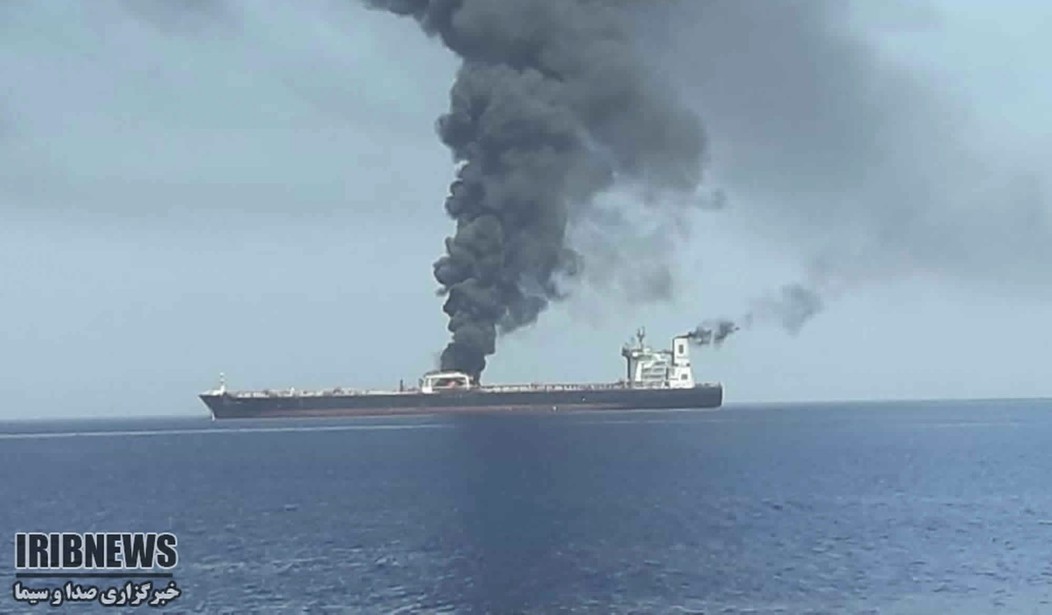Well, I suppose that’s a take.
"Because of what Donald Trump has done, we have put the Iranians in the driver's seat to decide how to provoke us," Senate Intelligence Committee member and presidential candidate @MichaelBennet says on #MTPDaily.
— Meet the Press (@MeetThePress) June 20, 2019
The aggressor — a fair description of Iran since 1979 — seeking to upend the existing order always holds the initiative. What Trump has done by reimplementing sanctions (and not crushing the domestic fracking industry with new regulations) is place financial restrictions on Tehran’s range of actions.
Iran’s recent attacks signal weakness and desperation, not strength and assurance — a situation Bennet is apparently unhappy with. As one of his Colorado constituents, I can’t say I’m the least bit surprised. I’ve followed Bennet for years, and he’s never struck me as being the sharpest penny in the pantry.
Our own Richard Fernandez describes one of the boxes Iran is in:
Iran only gains by raising tensions in the Strait, upping the price of oil. But actually closing the Strait would be political, if not national suicide. Most of the oil passing through Hormuz (about 11/17ths) is bound for the Straits of Malacca en route to China, Japan and Korea. If Tehran actually closed the Straits, by mining it for example, they would essentially be blockading China.
Tehran can push only so hard against the West and the Arab Sunni states before they alienate Beijing, and as Fernandez also notes, “with the U.S. nearly a net exporter of oil the pressure is actually on Asia to keep Hormuz open.” [Emphasis added]
That means President Trump is wise to be “in no hurry” to confront Iran. On the other hand, I do wish he hadn’t just said that a strike wouldn’t have been “proportionate to shooting down an unmanned drone.” That message tells Tehran exactly what they can get away with, when a little more strategic ambiguity might have been even wiser.
It’s a complicated situation, to say the least, perhaps more so than even readers here might recognize. So please read Gray Connolly’s “no great options” thread from last May. Connolly said, “There are no great options for the West with Iran – Iran is the ancient hegemon, an unavoidable crossroads, a bullying power and an enabler of terrorists, proxies & insurgents that are useful to Tehran. Anyone pretending you simply do nothing or fight a war is not being realistic.”
Click here and scroll for all the gory details.
Stay tuned, as I’m sure there’s more to come — and for a long while yet.
UPDATE: John Sheppard commented at Instapundit.
The US is not independent of foreign oil. We still import about half our supply. The world oil market is a unitary market and we are not insulated from oil market shocks. Once oil goes to market its point of origin disappears. Do you think Canada and Mexico will sell oil to the US at $60bbl when then can get $120bbl in Rotterdam?
Indeed. But I replied:
I don’t think anyone is arguing that a dustup with Iran wouldn’t lead –immediately — to another oil crisis. It would probably be akin to the oil shocks of the ’70s, but briefer. Our decreased dependence on foreign oil would allow us to weather a new crisis better than before, and this time around the clock would be on our side, not theirs. A long enough crisis might induce even New York to give up its fracking ban, and there are lots of tapped-but-currently-inactive fracking sites in Texas and Oklahoma, just waiting to be brought back into production. Meanwhile, given their shaky (at best) finances and tenuous (also at best) domestic support, I’m not sure the Mullahs Regime could survive more than a few weeks — even absent US or Some New Coalition airstrikes.
This isn’t 1973 or 1978 or even 2004, when President Bush refused to respond to very clear Iranian acts of war against us in Iraq, for fear of escalating the situation.










Join the conversation as a VIP Member